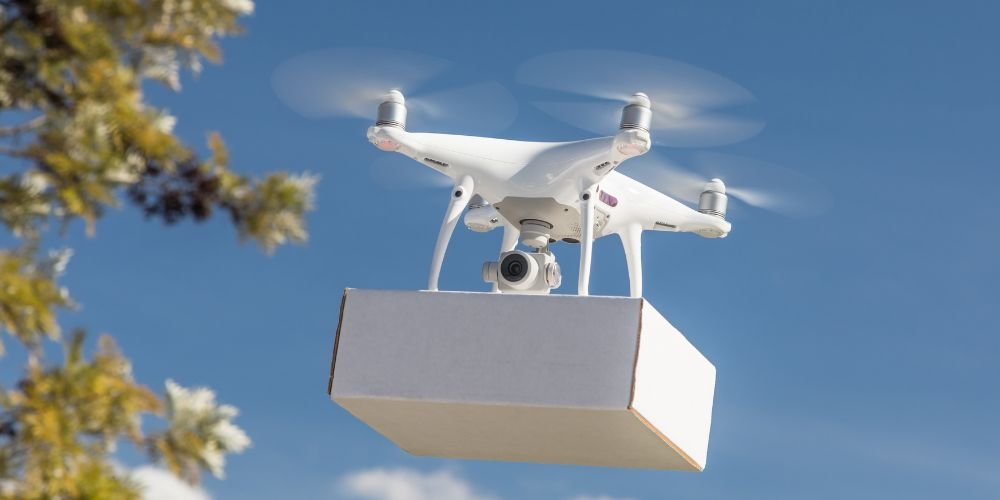In the realm of logistics and transportation, drone delivery systems have emerged as innovative solutions for expedited and efficient goods delivery. This article explores the intricacies of drone delivery systems, examining their functionalities, impacts, and ethical considerations surrounding their integration into the logistics ecosystem.
Drone Delivery Systems: Facts
Understanding the foundational facts surrounding drone delivery systems is essential for recognizing their potential benefits and challenges:
- Definition and Operation: Drone delivery systems utilize uncrewed aerial vehicles (UAVs) to transport goods from a distribution center to a designated destination. These drones can navigate autonomously or be remotely controlled by operators, carrying payloads ranging from small packages to medical supplies and even food items.
- Speed and Efficiency: Drone delivery offers the advantage of rapid transportation, bypassing ground traffic and geographical obstacles. By flying directly to their destinations, drones can significantly reduce delivery times, particularly for time-sensitive shipments or deliveries to remote or hard-to-reach locations.
- Environmental Impact: Drone delivery systems have the potential to reduce carbon emissions and alleviate traffic congestion associated with traditional delivery methods, such as trucks and vans. Electric-powered drones produce fewer emissions and have a smaller environmental footprint, aligning with sustainability goals and initiatives.
- Regulatory Considerations: Integrating drone delivery systems into airspace operations requires adherence to aviation regulations and safety standards. Regulatory agencies oversee drone operations, imposing restrictions on flight altitudes, operational areas, and payload capacities to ensure safe and responsible use of drone technology.
Drone Delivery Systems: Views
Examining various perspectives on drone delivery systems provides insight into the opportunities and challenges they present:
- Logistical Efficiency: Proponents of drone delivery systems emphasize their potential to enhance logistical efficiency and optimize supply chain operations. By streamlining last-mile delivery and reducing transportation costs, drones can improve delivery speed and customer satisfaction while minimizing the reliance on traditional delivery networks.
- Accessibility and Inclusivity: Drone delivery has the potential to address logistical challenges in remote or underserved areas where access to goods and services is limited. By providing rapid and reliable delivery solutions, drones can bridge the gap in access to essential goods, including medical supplies, food, and humanitarian aid, particularly in disaster-stricken regions.
- Privacy and Security Concerns: Critics raise concerns about the privacy implications of drone delivery, particularly regarding aerial surveillance and data collection. Safeguarding personal privacy and protecting sensitive information from unauthorized access or misuse is paramount in deploying drone technology, necessitating robust privacy policies and data encryption measures.
- Community Engagement and Acceptance: Successful implementation of drone delivery systems requires community engagement and acceptance. Addressing public concerns about noise pollution, visual intrusion, and safety risks associated with drone operations is essential for building trust and fostering positive relationships between drone operators, residents, and regulatory authorities.
Conclusion
Drone delivery systems hold promise for revolutionizing logistics and transportation, offering fast, efficient, and environmentally friendly delivery solutions. However, realizing this potential requires addressing technical, regulatory, and ethical considerations associated with their deployment. By prioritizing safety, sustainability, and community engagement, we can harness the benefits of drone technology while mitigating risks and ensuring responsible use. Embracing drone delivery as a tool for enhancing logistical efficiency while upholding ethical principles is essential to shaping a future where goods can be delivered swiftly and sustainably to communities worldwide.





